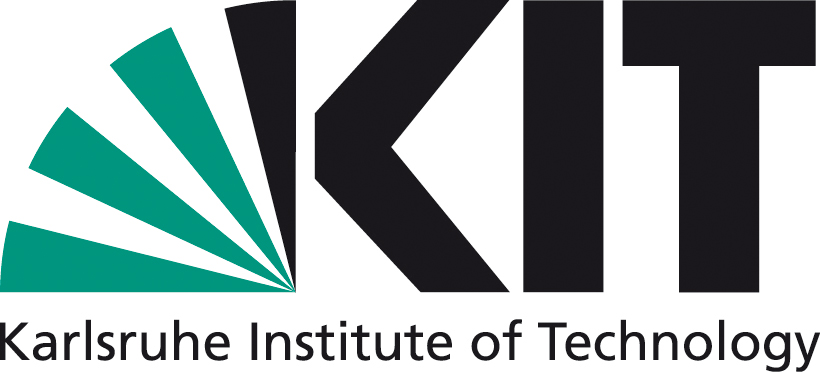Democracy and technology assessment
Practical challenges and conceptual consequences
DOI:
https://doi.org/10.14512/tatup.29.3.11Keywords:
technology assessment, crisis of democracy, populism, deliberative democracy, technology governanceAbstract
Technology assessment (TA) was established more than 50 years ago to support democratic opinion forming and decision making. Since then, it has developed and diversified in Western democratic societies. This model has faced a number of challenges in recent years, including: (1) In almost all Western countries, the rise of populist movements has led to talk of a crisis of democracy. (2) The ongoing digitalization enables new patterns of communication and mobilization far beyond traditional forms of democratic opinion forming and decision making. (3) Grassroots and participatory negotiations are becoming more and more relevant for the development and acceptance of new technology. This introduction unfolds these challenges and provides an overview of the contributions to the TATuP special topic.References
Barber, Benjamin (1984): Strong democracy. Participatory politics for a new age. Berkeley, California: University of California Press.
Bimber, Bruce (1996): The politics of expertise in Congress. The rise and fall of the Office of Technology Assessment. New York: State University of New York Press.
Decker, Michael; Lindner, Ralf; Lingner, Stephan; Scherz, Constanze; Sotoudeh, Mahshid (Hg.) (2018): „Grand Challenges“ meistern. Der Beitrag der Technikfolgenabschätzung, Baden-Baden: Nomos.
Delvenne, Pierre; Grunwald, Armin; Nierling, Linda; Torgersen, Helge (2019): Balancing engagement and neutrality in technology assessment. Interview with Pierre Delvenne and Armin Grunwald. In: TATuP – Zeitschrift für Technikfolgenabschätzung in Theorie und Praxis 28 (1), S. 71–74.
Dewey, John (1927): The public and its problems. New York: Henry Holt.
Gaus, Daniel; Landwehr, Claudia; Schmalz-Bruns, Rainer (2020): Defending democracy against technocracy and populism. Deliberative democracy’s strengths and challenges. In: Constellations 27, S. 335–347.
Grunwald, Armin (2018): Technikfolgenabschätzung und Demokratie. In: TATuP – Zeitschrift für Technikfolgenabschätzung in Theorie und Praxis 27 (1), S. 40–45.
Grunwald, Armin (2019): Technology assessment in practice and theory. Abingdon: Routledge.
Habermas, Jürgen (1968): Verwissenschaftlichte Politik und öffentliche Meinung. In: Jürgen Habermas: Technik und Wissenschaft als ‚Ideologie‘. Frankfurt am Main: Suhrkamp, S. 120–145.
Habermas, Jürgen (1992): Faktizität und Geltung. Beiträge zur Diskurstheorie des Rechts und des demokratischen Rechtsstaats. Frankfurt am Main: Suhrkamp.
Hahn, Julia; Ladikas, Miltos (Hg.) (2019): Constructing a Global Technology Assessment. Insights from Australia, China, Europe, Germany, India and Russia. Karlsruhe: KIT Scientific Publishing.
Jantsch, Erich (1967): Technological forecasting in perspective. Paris: OECD.
Joerges, Christian; Neyer, Jürgen (1997): From intergovernmental bargaining to deliberative political processes. The constitutionalisation of comitology. In: European Law Journal 3 (3), S. 273–299.
Krauch, Helmut (1961): Wider den technischen Staat. In: Atomzeitalter 8, S. 201–203.
Moniz, Antonio; Okuwada, Kumi (Hg.) (2016): Technology assessment in Japan and Europe. Karlsruhe: KIT Scientific Publishing.
Nierling, Linda; Torgersen, Helge (Hg.) (2019): Normativität und Technikfolgenabschätzung. In: TATuP – Zeitschrift für Technikfolgenabschätzung in Theorie und Praxis 28 (1), S. 10–64.
Nierling, Linda; Torgersen, Helge (Hg.) (2020): Die neutrale Normativität der Technikfolgenabschätzung. Konzeptionelle Auseinandersetzung und praktischer Umgang. Baden-Baden: Nomos.
PACITA – Parliaments and Civil Society in Technology Assessment (2012): TA Practices in Europe. Report of the PACITA project. Online verfügbar unter www.pacitaproject.eu/wp-content/uploads/2013/01/TA-Practices-in-Europe-final.pdf, zuletzt geprüft am 21. 10. 2020.
Petermann, Thomas; Grunwald, Armin (Hg.) (2005): Technikfolgen-Abschätzung für den Deutschen Bundestag. Das TAB – Erfahrungen und Perspektiven wissenschaftlicher Politikberatung. Berlin: Edition Sigma.
Pielke, Roger (2007): The honest broker. Making sense of science in policy and politics. Cambridge: Cambridge University Press.
Saretzki, Thomas (1997): Demokratisierung von Expertise? Zur politischen Dynamik der Wissensgesellschaft. In: Ansgar Klein und Rainer Schmalz-Bruns (Hg.): Politische Beteiligung und Bürgerengagement in Deutschland. Möglichkeiten und Grenzen. Baden-Baden: Nomos, S. 277–313.
Saretzki, Thomas (2011): Der Klimawandel und die Problemlösungsfähigkeit der Demokratie. In: Suzanne Schüttemeyer (Hg.): Politik im Klimawandel. Keine Macht für gerechte Lösungen? Baden-Baden: Nomos, S. 41–63.
Saretzki, Thomas (2015): Habermas, critical theory and public policy. In: Frank Fischer, Douglas Torgerson, Anna Durnová und Michael Orsini (Hg.): Handbook of critical policy studies. Cheltenham: Edward Elgar, S. 67–91.
Siune, Karen et al. (2009): Challenging futures of science in society. Emerging trends and cutting-edge issues. Report of the MASIS Expert Group for the European Commission. Brüssel: EU Commission.
Schmalz-Bruns, Rainer (2018): Legitimitätsbedingungen demokratischer Innovationen. In: Forschungsjournal Soziale Bewegungen 31 (1–2), S. 82–93.
Schomberg, René von (Hg.) (1999): Democratizing technology. Theory and practice of a deliberative technology policy. Hengelo: International Center for Human and Public Affairs.
Urbinati, Nadia (2014): Democracy disfigured. Opinion, truth and the people. Cambridge, Massachusetts: Harvard University Press.
Vibert, Frank (2007): The rise of the unelected. Democracy and the new separation of powers. Cambridge: Cambridge University Press.
Downloads
Published
How to Cite
Issue
Section
License
Copyright (c) 2020 Armin Grunwald and Thomas Saretzki

This work is licensed under a Creative Commons Attribution 4.0 International License.








